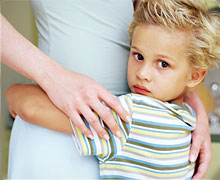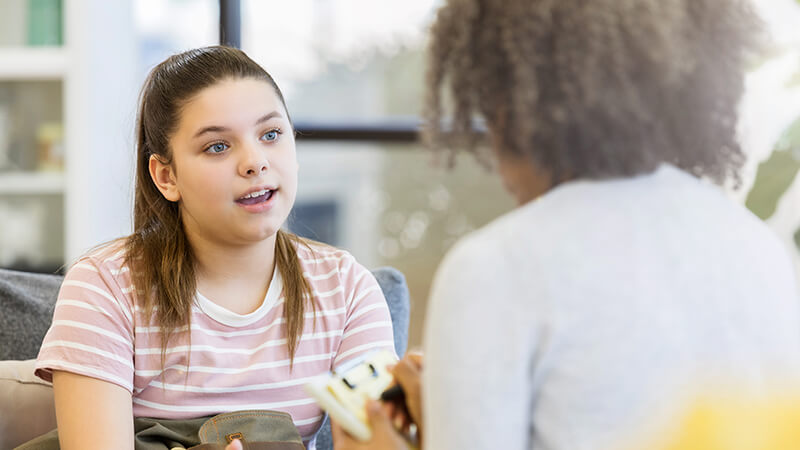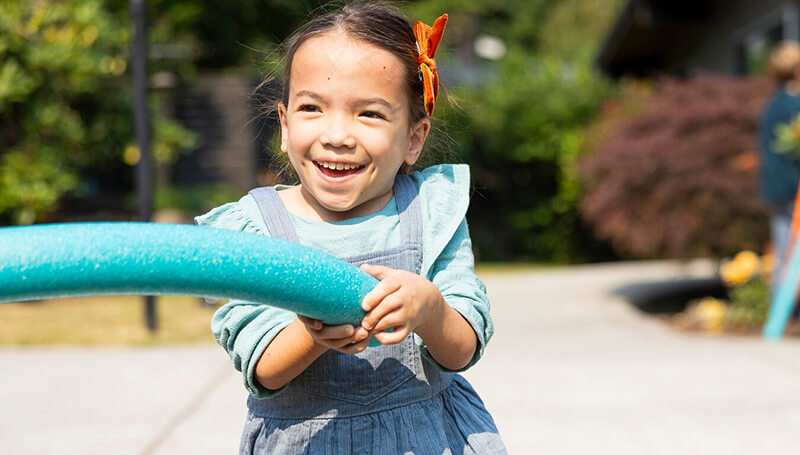Disasters and Scary Events: Helping Children Cope
You can download this article as a PDF (English, Spanish).

As a parent, you can't control natural disasters or events in our world, but you can help your child cope when they do happen. The following tips provide ideas for helping your child feel safe, recognizing when your child is having trouble coping and being a good role model.
Limit how much media coverage your child sees or hears
- Turn off the TV and radio to help protect children from being overwhelmed with the repeated stories and video images of the disaster. Also avoid letting them see graphic pictures in newspapers, magazines and social media.
- If you choose to have the TV on, watch with your child and talk about what you see. Answer your child's questions.
Help your child feel safe
Tell your child they are safe, that they are your main concern and you will not leave them alone.
Be honest with your child
- Your child will be aware that something has happened. Before answering questions, ask your child what they know and want to know.
- Give simple, honest answers, but also give comfort. You might say things like, "A few people made some bad decisions to hurt people," "It happened a long way from here" or "Most people are good."
- Listen to your child's feelings and concerns. It is important to be honest about your own fears and worries, but keep in mind that children need to know people can have strong feelings and still cope with hard situations.
- Encourage your child to ask questions at any time.
Be aware of your child's feelings
- It's OK if your child doesn't want to talk about it with you, but remain aware of changes in mood and how your child acts.
- Coach your child in setting limits with friends or others when talking about events.
- Some children may show what they're thinking through their pictures or their play. This can relieve stress, give you clues to their concerns and open the door for talking about their feelings.
- Each child responds in a unique way. Your child's response may change over time.
Stick to routines
As best as you can, keep on with regular activities, meal times and bedtimes. During stressful times, your child especially needs the safety and security that come with regular routines.
Allow and expect your child to go back to behaviors they may have given up
These may include being clingy or problems with potty training and thumb sucking for a young child.
Your child may need you to:
- Leave the light on while they sleep
- Respond quickly to nightmares
- Give extra hugs and reassurances
- Stay close to them as they fall asleep
- Let them know where you are or will be
Use your family's values to reassure your child
- Point out that there are helpers and heroes who are working hard to make this situation better.
- Help your child understand what they can do to not feel helpless, such as raise money for relief efforts.
- If you have faith traditions and spiritual practices, use them for comfort.
Take good care of yourself
- Be aware of your own feelings. Talk with friends, family and colleagues.
- Develop a plan to manage your own feelings. Parents who are stressed have a harder time helping their children manage their feelings.
As time passes, watch for delayed stress
Even if your child does well right after an event, they may have delayed stress weeks later. As adults go back to their routines, children may start to have thoughts of the scenes they saw on TV, recall their parents' anxiety and start to think about what could happen to them.
Watch for signs of anxiety in your children, such as not wanting to:
- Be away from you and other caregivers
- Go to school
- Leave the house
- Go to sleep at night
Your child may become cranky, sad or aggressive during the day, or have nightmares. Some children may show increased violence in their play, with themes related to events, such as war play or having "evil people" attack "good people."
These symptoms could show a delayed post-traumatic stress response. Some children can be reassured by talking over their concerns with their parents. Others may need professional help.
Secondary Fallout
Some events cause secondary effects, like a change in the economic and social conditions of our country. Parents may talk about their concerns about money, be fearful of job loss or know someone who loses a job. Others may question their life values or be called up for military service. Children may overhear some of these discussions. Although they may not express their concerns, they may become anxious about family matters that they haven't seemed to pay attention to in the past. Parents' concerns and fears may "infect" their children. Again, talking over concerns with a parent will help some children. Others will need professional help.
When to Seek Professional Help
- When you see a consistent and lasting change in your child's behavior and mood
- If your child's grades or behavior in school changes in a negative way
- If your child no longer is able to enjoy doing things they used to do, such as playing with friends
- If your child has increasing angry or tearful outbursts that do not show signs of stopping
To Learn More
- Ask your child's healthcare provider
- Watch Talking to Your Kids About Disasters, Death, Dying and Tragic News

